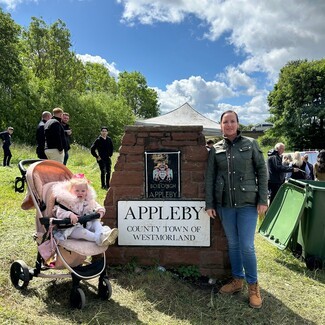National Kinship Care Framework Failing Gypsy and Traveller Children - Experts and Carers Warn

A profound systemic failure is preventing Gypsy and Traveller children from accessing kinship care, leaving them disproportionately channelled into the general care system and severed from their cultural identity, experts and carers have warned.
This stark contradiction is highlighted by 2021 Census data. While over 141,000 children in England and Wales are in kinship care, a glaring disparity exists: 75.1% are from a White, non-GRT background. Representation of Gypsy, Roma, and Traveller (GRT) children is statistically minimal, despite them being over three times more likely to be in care than their peers.
This failure is both a moral and legal issue. Romany Gypsies and Irish Travellers are protected ethnic groups under the Equality Act 2010, and the Children Act 1989 requires that every child in care has their identity celebrated.
Now, a kinship carer with firsthand experience is speaking out about the cultural barriers within the system itself.
The Romany woman* has cared for her relative for three years under a Special Guardianship Order, securing the child’s future until she is 18.
“I’ve had personal experience of the wealth of love and nurturing a Gypsy Traveller child being raised within their communities can bring to their lives,”
“But it was not an easy process.”
“I recall a telling question from social services during the assessment: One of the first questions they asked me was ‘if I would raise her like a Gypsy’.”
“My response was: What do you mean? I live in bricks and mortar accommodation, I have a degree, run two organisations. My elder girls are both at university. We have no previous history of drugs or crime, and all have enhanced DBS certificates.”
“Do you mean will I raise her with morals, enveloped in family love, an understanding of her culture, to speak her language, follow her culture and not be assimilated into wider society, losing her cultural connections? That is exactly what I will do.”
The core problem, experts argue, is a clash between cultural understanding and a rigidly regionalised care system. Gypsy, Roma and Traveller families maintain wide kinship networks through travel, but local authority systems are ill-equipped to assess carers across geographic boundaries. This leads to either over-involvement, where hasty proceedings bypass kinship options, or under-involvement, where children's needs are ignored.
Experts urge a five-point plan for improvement: educate on kinship networks, collaborate across boundaries, recruit GRT carers, engage holistically to keep families together, and build trust with communities.
The message from both data and lived experience is clear: the system must see extended families, not just boundaries, to nurture culture and belonging for every child.
Experts urge a five-point plan for improvement: educate on kinship networks, collaborate across boundaries, recruit Gypsy, Roma and Traveller carers, engage holistically to keep families together, and build trust with communities.
The message from both data and lived experience is clear: the system must see extended families, not just boundaries, to nurture culture and belonging for every child.
*Reporting restrictions and the privacy of the child means that the name of the carer or her child can be shared
By GATE Essex
Photo courtesy of author